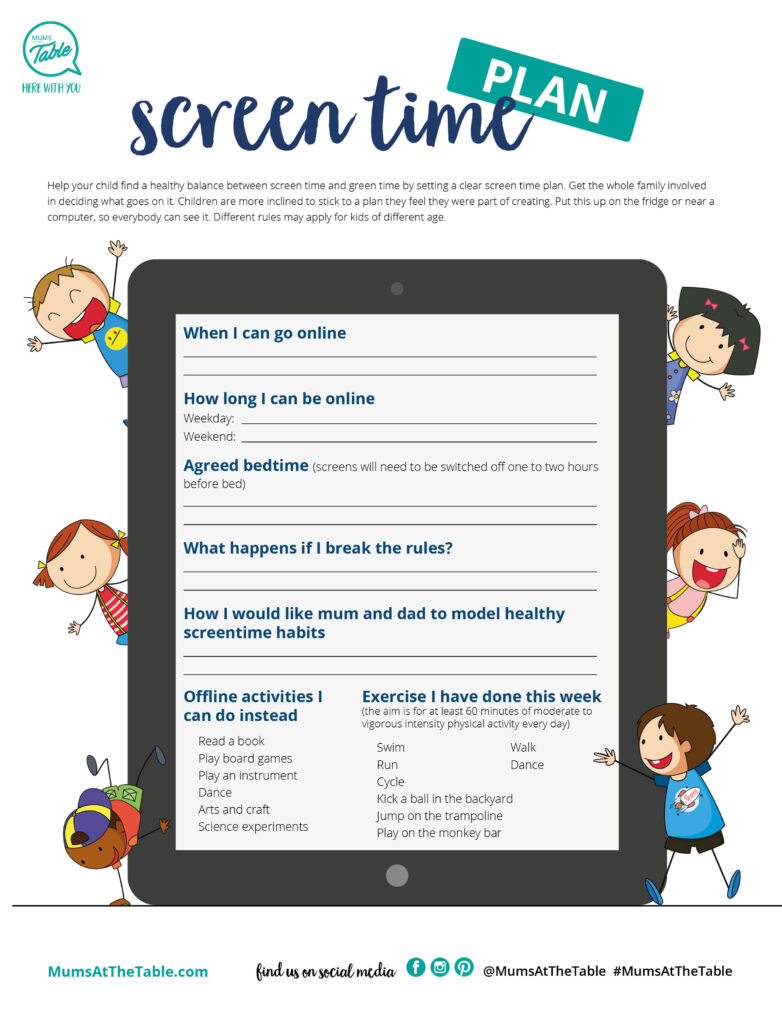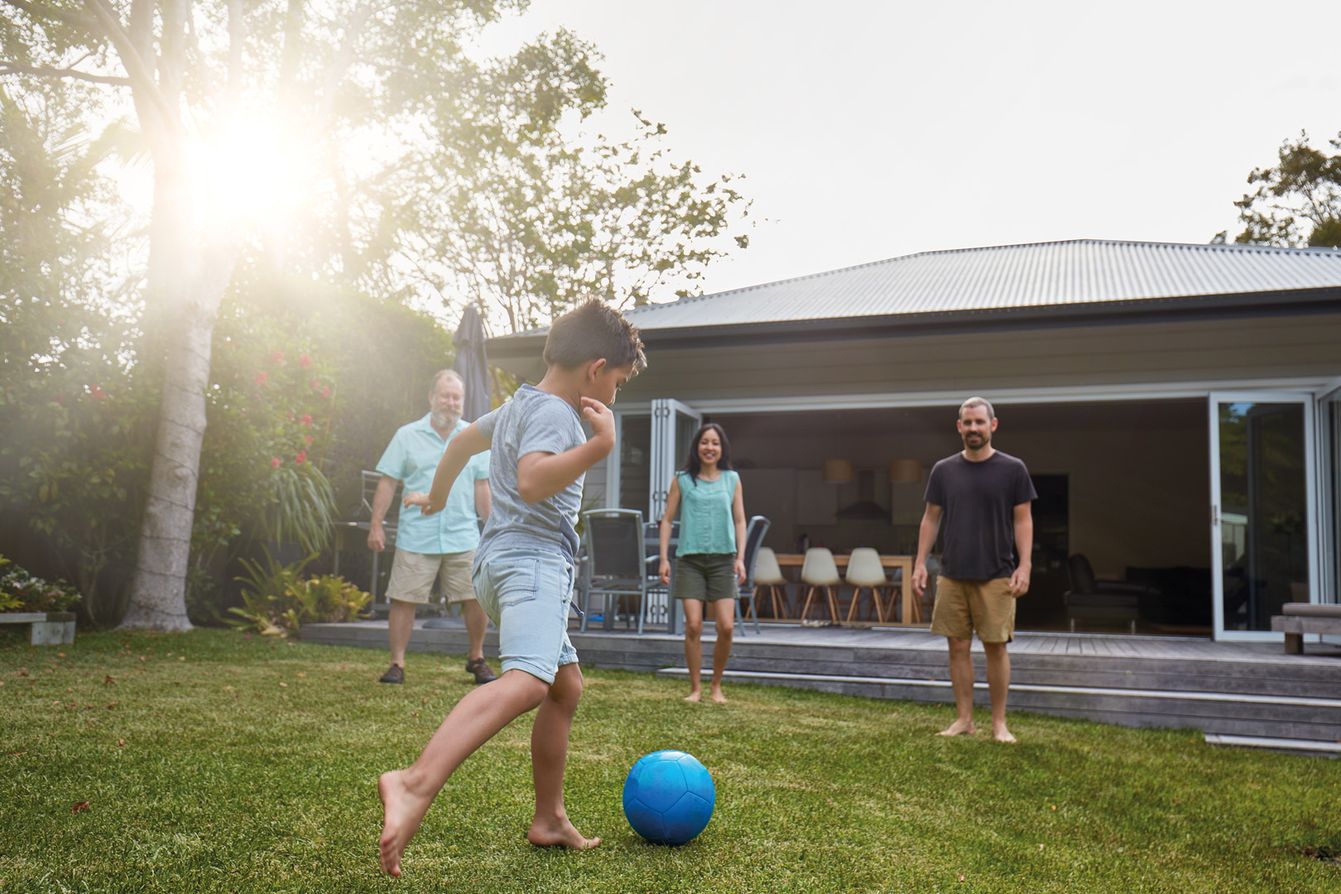Science is beginning to back up what we’ve traditionally believed to be the secret to raising happy, healthy children.
Reading to our children before bedtime, kicking a ball with them, giving them nutritious food and making sure they have enough sleep are some of the common activities that bind us all as parents. In one form or another, our parents’ parents did it with them, our parents did it with us and today, we do it with our children.
“The epiphany if you like, was discovering that what seems to be common sense parenting is actually supported by science,” says Professor Christine Bennett, paediatrician and dean of the School of Medicine at The University of Notre Dame Australia. “What we intuitively know feels good to us is in fact good for our children.”
Ensuring a happy childhood
Professor Christine is referring to her research, which led to the Little People, Big Lives Report: Foundations for healthy Australian children in the 21st century. For about a year, Professor Christine and her team pored over more than 500 recent journal articles, studies and reports, to investigate the most current evolving area of science when it relates to raising children, and the priorities they felt were areas of actions that parents should take.
The study was commissioned by the Sanitarium Health Food Company, who wanted “to help empower parents in making the best decisions around wholistic health and wellness in their kids’ everyday lives”.
“Sanitarium was keen to explore what the current research and advice was for parents because they felt information for parents can be very complicated and sometimes confusing. They asked us to have a look at what the current science and the best advice was for parents to give their children a good start in life,” says Professor Christine.
5 important areas to focus on
Independently, Professor Christine and her colleagues came up with the same five areas that would give children a healthy start to life. She is quick to add, however, that “there are other things that are important in a child’s life, such as early childhood education, or having your children learn musical instruments or another language, or take time in creative activities such as art and performance dancing.
“What we were looking at were the scientific, evidence-based, fundamental things that we can do in our day-to-day living that will give children the best prospects for a long, healthy and fulfilling life.”
Epigenetics, neural plasticity, positive psychology, the gut microbiome and social science were the five emerging areas of science that Professor Christine and her team agreed they should focus their research on.
In a nutshell, Professor Christine’s scientific research showed the following:
- Our social and physical environment has a direct impact on us and our DNA
- The brain continues to develop new functions until 23 or 24 years of age, when the decision-making and complex brain functions are finally formed
- Focusing on a child’s strengths and guiding them positively has a positive impact (the reverse is true: a difficult early start in life can have a negative impact)
- The bacteria that lives in our gut can impact our health
- Connecting with others and being surrounded by community is the strongest predictive factor for a long life
While the above list may sound like a mouthful and seem rather complicated, the resulting five areas of actions for parents, as presented in the Little People: Big Lives Report, is anything but.
Professor Christine and her team’s five recommended areas of action for child development and giving children the best possible health and wellbeing are:
- Safety, security, love and belonging (achieved through activities such as playing together, singing and sharing stories)
- Healthy eating and drinking
- Active play
- Healthy sleep
- Positive screen time
Practical ways parents can raise happy, healthy children
The links between the scientific focus and parental action may not be clear at first, but Professor Christine explains it this way.
“Reading to your children at night, playing with them, laughing with them, having them outside, eating meals together . . . we’ve always known was good for our children and an important part of parenting.
“[Now] the science actually says it can improve the way your child’s brain grows and your child’s development on a cellular level. It can improve your gut microbiome, it will be a positive experience for your child, creating great mental wellbeing and resilience, and results in great social connectedness.
“It’s how all those things combine together and make so much sense that I hope mums out there will see as empowering, almost giving them permission in their very busy lives to do some of the things that we have always felt were important but maybe we thought they were a lower level of importance than some other things. Now [thanks to science] we know that [they have] a very high level of importance.”
How much screen time is healthy?
For most parents, what isn’t immediately intuitive is how to manage screen time. Digital natives is the term used to describe an entire generation of children growing up with the internet, computers and smartphones as part of their lives. With five children aged between 19 and 30, Professor Christine herself personally experienced this transformation in parenting, “where [digital technology] didn’t even exist to where now it’s a sometimes dominating part of life”.
She points out, however, that while we may not be able to turn to our parents for advice when it comes to the actual use of the internet, there has been a sort of precedent some 60 years ago, in the form of the television. The difference, of course, is that technology is much more a part of life now than television ever was.
“The internet is just part of who we are now, it is part of community, part of the structure, fabric and global connectedness. So in that context, we have to prepare our children and to guide our children for that,” she says.
Not all screen time is evil and Professor Christine is quick to remind us of how technology does enrich all our lives. (“You just have to have the internet go down or lose your phone to know how your life turns upside-down without it.”)
“It’s just a matter of balance, because time spent on a screen is time not doing something else. Technology helps us to have a better and enriched life, but we don’t want it to dominate or rule our lives.”
And, as with almost anything parenting-related, a healthy and positive screentime experience starts with us being able to turn our screens off.
“The most important thing that you can do for your child is modelling,” Professor Christine says. “Children pick up everything. From your body language, your verbal language to your habits. Even if they are a cranky teenager who is arguing with you, I promise you they are very likely to mimic you and model you. I’m not putting pressure on people, but you’re really preparing young people for life; preparing them with the ability to turn the phone and the screen off.”
A reassuring thought from Professor Christine’s research lies in the area of neural plasticity, where it has been proven the brain continues to develop well past the teenage years. Essentially, what this means is that it’s not too late for parents to introduce new, healthy habits.
Most importantly, the results from the Little People, Big Lives Report are not about creating yet another checklist of things that parents have to do. As Professor Christine herself suggests, it’s more to encourage parents that while it may seem simple and basic, the common sense parenting habits that many of us already have are indeed backed by science. It’s simply about intentionally incorporating them into our day-to-day lives.
The five areas of action and what it means practically
1. Safety, security, love and belonging
- Notice an achievement
- Share news with each other, read to each other, sing with each other
- Use language that expresses warmth and positive feelings
- Play a game together
2. Healthy eating and drinking
- Schedule unrushed family meals that are “electronic-
free” zones - Replace high-kilojoule snacks with fruit and vegetables
- Replace soft drinks with water
- Let vegetables make up most of your meals
3. Active play
- Regularly go outside to your local playground, park or bushland
- Walk, ride or scooter to school (or to the shops) as part of your daily routine
- Join local activity groups or sports teams you have an interest in
4. Healthy sleep
- Remove all electronic devices from bedrooms
- Set bed times and wake up times
- Keep the bedroom dark, quiet and at a comfortable temperature
- Create rituals to help prepare the body for sleep
5. Positive screentime
- Have clear rules for screen times
- Plan offline activities to ensure balance
- Locate devices in a shared or visible space
Free printable: Screen time plan

How helpful was this article?
Click on a star to rate it!
4.8 / 5. 4
Be the first to rate this post!
Melody Tan
Related posts
Subscribe
Receive personalised articles from experts and wellness inspiration weekly!


